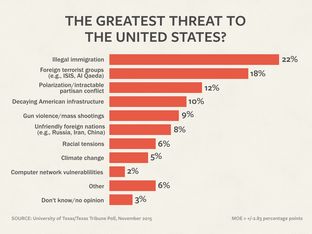A few odds and ends about Brady, his selection and his goals.
- Rep. Kevin Brady Gains Edge to Become House Ways and Means Chairman.
Rep. Kevin Brady (R., Texas) will likely become the next chairman of the House Ways and Means Committee after winning an intraparty contest Wednesday. Mr. Brady beat Rep. Pat Tiberi of Ohio in a vote of the House Republicans’ steering committee, a group where new House Speaker Paul Ryan had outsize sway to select his successor as Ways and Means chairman. The choice must be ratified by the full Republican conference, which is set to meet Thursday morning. Mr. Brady will become one of the party’s leading voices on tax, trade and health policy. He said in a statement that he wanted to implement a “pro-growth agenda” for the country.
- A veteran Texas lawmaker is about to become one of the most powerful members of Congress.
The House's newest and perhaps most powerful committee chairman is a 60-year-old Texas Republican who began life in a family of stalwart Democrats from South Dakota and lost his father at age 12 in a courtroom shooting. Rep. Kevin Brady, whose bulldog-looks belie a softer manner, took the helm of the Ways and Means Committee last week. That puts the 19-year House veteran at the forefront of key issues Congress will tackle heading into the 2016 election year, including taxes, trade and benefit programs such as Medicare and Social Security. Brady's Chamber of Commerce career before entering Congress molded a mainstream conservative viewpoint, yet he is well regarded by harder-line conservatives.
- House Ways and Means shuffles subcommittees.
The House Ways and Means Committee on Wednesday completed a subcommittee shuffle that was needed after Rep. Paul Ryan left the chairmanship for the speaker's office. New Chairman Kevin Brady (R-Texas) announced the changes that includes adding Rep. Tom Rice (R-S.C.) and adjusts the names and sizes of several subcommittees. "These Republican subcommittee chairs and members will play a crucial role in taking real steps toward fixing our country’s broken tax code, reining in the IRS, reforming the nation’s welfare programs, expanding trade, replacing the Affordable Care Act and saving Social Security and Medicare for the long term," Brady said in a statement.
- Texas Republican ready to tackle ‘broken tax code’
A year ago, when former House Speaker John Boehner was asked about prospects for a sweeping new Republican tax reform plan, he answered with a laugh.
“Ah Jesus,” he said.
That plan, cutting tax rates and stripping away many of the special interest loopholes that riddle the U.S. tax code, still languishes in Congress, one of the many legislative victims of Washington gridlock. Now, under Speaker Paul Ryan, the job falls to Texas Republican Kevin Brady, the newly-installed chairman of the House Ways and Means Committee, where all tax legislation begins. Sitting at a conference table recently in his office as the new chairman, Brady promised a “strong pro-growth agenda” whose chief goal would be “fixing the broken tax code.”


/cdn0.vox-cdn.com/uploads/chorus_asset/file/3459788/netanyahu_nancy_pelosi.0.jpg)